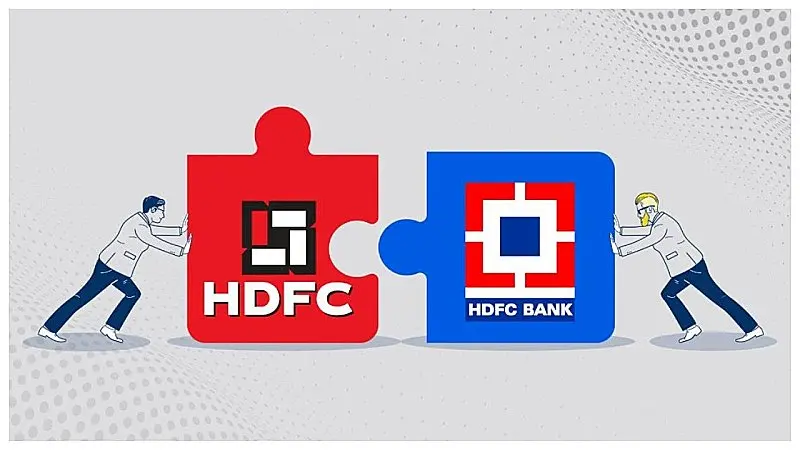In India, HDFC Ltd. is a housing finance company, and HDFC Bank is one of the top private sector banks.
HDFC Bank has successfully concluded its merger with its parent firm HDFC, becoming the largest merger between a private sector bank and an NBFC, creating the fifth largest lender in the world. The merger will go into effect on July 1, 2023, and around July 13, HDFC will be delisted from the exchange.
The effect of a merger between HDFC Bank and HDFC Ltd on share prices would depend on several variables, including the terms of the merger agreement and market conditions at the time. Depending on variables including the exchange ratio, valuation, synergies, market sentiment, and regulatory approvals, mergers can have varying effects on share prices.
The largest merger between a private sector bank and an NBFC is HDFC Bank and HDFC. The investors in these two stocks would notice several changes in their portfolios even though the merger, in which HDFC Bank will acquire its parent HDFC and the latter will also be delisted from markets, is an in-house deal.
How will the merger affect your HDFC shares?
As on July 13, 2023, your HDFC shares will be delisted from the BSE and NSE. There is no need to be concerned, though, since your HDFC shares will continue to be traded on markets using the HDFC Bank scrip codes.
Here are a few outcomes that will assist you understand how the HDFC Bank and HDFC merger would affect the Indian stock market:
- Market cap change: As per the information available on the official website of BSE, currently, HDFC Bank has a market capitalization of ₹9,51,584.36 crore, while HDFC Ltd has a market capitalization of ₹5,22,368.64 crore.
- After the amalgamation or merger of HDFC Bank and HDFC Ltd, the combined market capitalization of HDFC Bank is projected to be ₹14,73,953 crore. This combined market capitalization would make HDFC Bank the second most valuable Indian company in terms of market capitalization, just behind Reliance Industries Ltd (RIL), which has a market capitalization of ₹17,25,704.60 crore.
- Weightage in Nifty index: HDFC Bank contributes 9.23% and HDFC contributes 6.16% to the Nifty index, which totals 15.39%. After the merger of HDFC Bank and HDFC Ltd, the relative weightage of HDFC Bank would be around 15% in the Nifty index. This means that HDFC Bank would have a higher weightage in the index compared to its current individual contribution.
- HDFC Bank subsidiaries: After the merger, HDFC Securities, HDFC AMC, HDFC Ergo GIC, HDFC Capital Advisors, and HDFC Life Insurance will be some of the major HDFC Bank subsidiaries. The price of HDFC Bank shares following the merger may thus vary if there is a significant development in any of these entities.
- HDFC Bank HDFC merger ratio: HDFC Bank will be entirely held by public shareholders as of the current implementation of the agreement, while current HDFC Ltd shareholders will own 41% of HDFC Bank. A shareholder will receive 42 HDFC Bank shares for every 25 HDFC shares they own.
- World’s fourth largest bank: After JP Morgan Chase & Co, Industrial and Commercial Bank of China Ltd (ICBC) and Bank of America Corp , HDFC Bank HDFC merger would create the world’s fourth largest bank in the world.
Why the Merger?
By combining their strengths, HDFC Bank and HDFC will become stronger financial entity. The objective is to better satisfy client requirements and adapt to changes in the industry. Synergies between HDFC Bank’s banking system and its client base in HDFC’s housing finance will result from the merger benefiting both.


